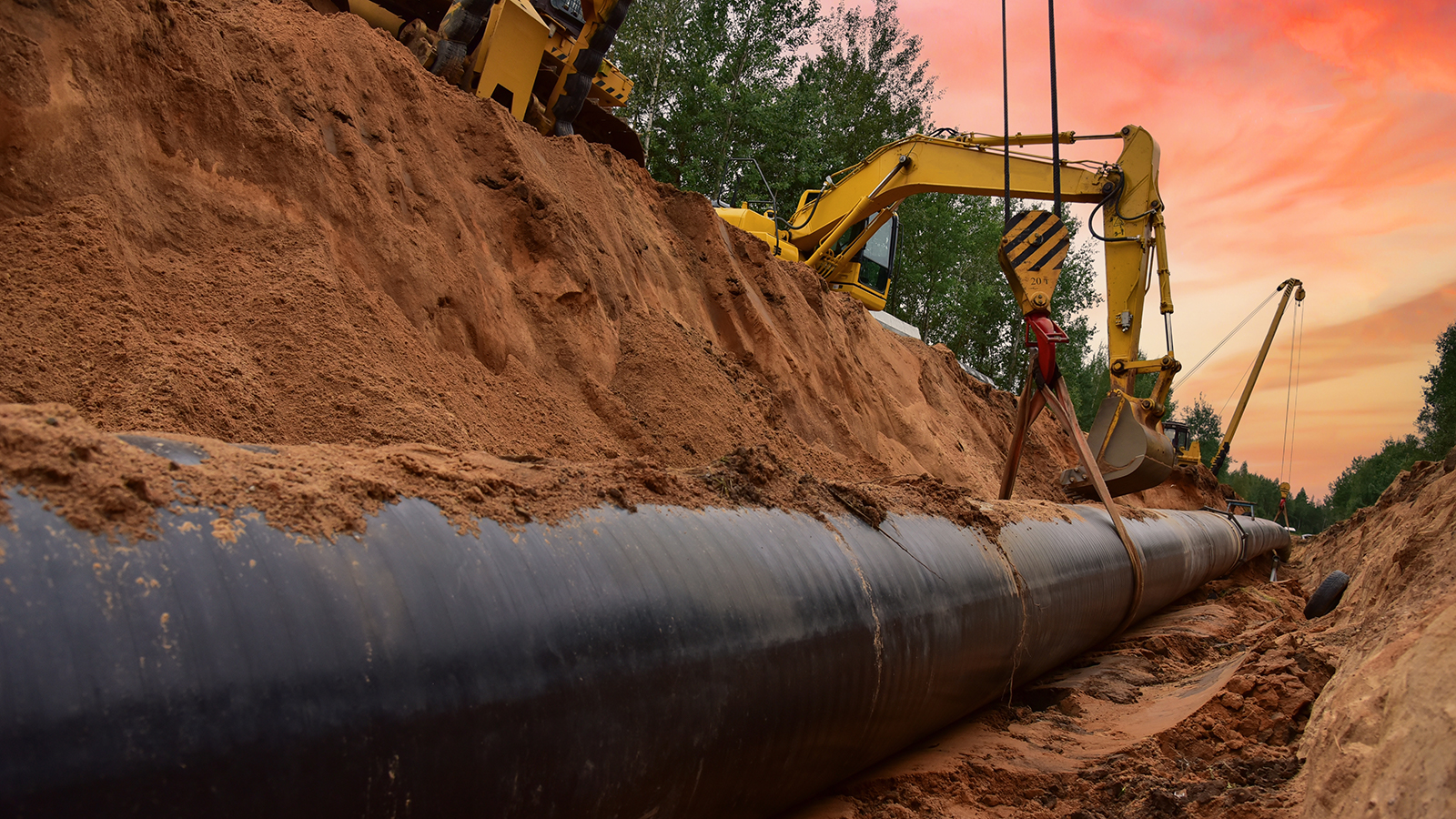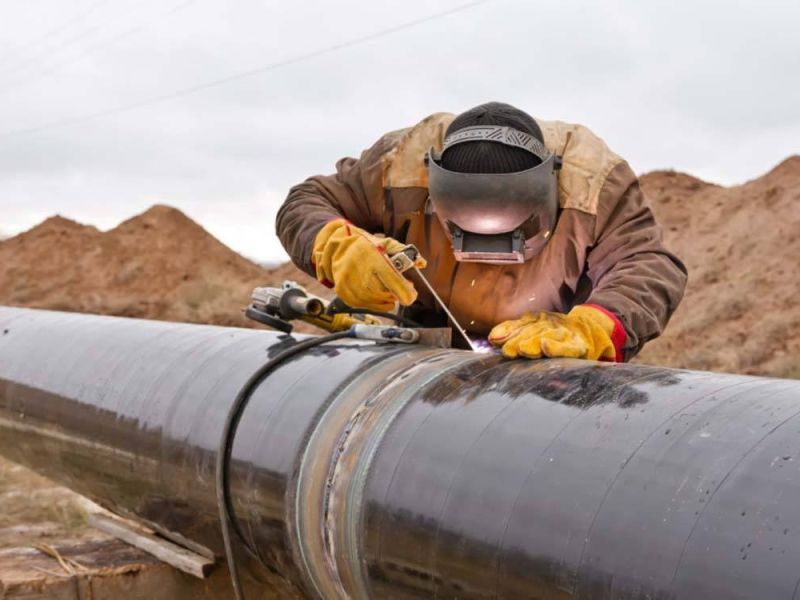How Creek Pipe Texas Is Reshaping the Pipeline Industry in Midland
A Comprehensive Overview to Recognizing Pipelines and Their Duty in Construction
Pipes are necessary parts in building, offering crucial features in water, waste, and gas management. Their choice and application can substantially affect a structure's effectiveness and security. Numerous materials, such as PVC, copper, and PEX, offer unique benefits suited to specific requirements (Creek Pipe Midland). Comprehending these factors is vital for any building and construction task. As one explores the intricacies of pipelines, the implications for compliance and public health ended up being progressively noticeable
The Value of Water Lines in Construction
Pipelines function as vital channels in building, promoting the activity of water, gas, and waste throughout buildings and infrastructure. Their duty prolongs beyond plain transport; they are vital for ensuring the capability and security of domestic and commercial atmospheres. Correctly installed pipes add to the efficient distribution of resources, making it possible for daily activities such as food preparation, bathing, and home heating. Furthermore, pipelines play a crucial duty in waste administration, ensuring that sewage and wastewater are effectively eliminated from living spaces.The importance of pipelines is additionally reflected in their effect on public health. Defective or insufficient piping systems can bring about contamination and unsafe problems, making top quality products and installment techniques vital. Furthermore, pipes need to abide by different building codes and policies, which are designed to protect both occupants and the setting. The importance of pipes in building and construction includes both useful functionality and vital wellness considerations.
Sorts Of Piping Made Use Of in Building Tasks
Different sorts of pipelines play a substantial function in structure jobs, each developed to fulfill certain needs and applications. Amongst one of the most typically made use of pipeline types are PVC, which is light-weight and resistant to corrosion, making it excellent for drain and vent systems. CPVC pipelines, similar to PVC, can hold up against higher temperature levels, typically utilized in hot water systems. Copper pipes are understood for their sturdiness and integrity, often employed in plumbing and home heating applications. Galvanized steel pipes, while much less usual today, were when a standard for water lines because of their toughness. In Addition, PEX (cross-linked polyethylene) pipelines are getting popularity for domestic plumbing as a result of their flexibility and resistance to scaling and chlorine. Cast iron pipelines are favored for their sound-dampening properties, typically made use of in waste and soil systems. Each pipe type offers distinct functions, ensuring reliable operation in construction jobs.
Usual Products for Piping and Their Characteristic
In building, the choice of pipe products is vital for guaranteeing sturdiness and capability. Steel pipes use toughness and resistance to high pressures, while plastic pipelines supply light-weight and corrosion-resistant alternatives. Composite pipes integrate the benefits of both materials, making them versatile choices for numerous applications.
Metal Pipeline Options
Steel pipes are integral elements in building, offering a series of options that accommodate ecological problems and various applications. The most typical products consist of steel, copper, and cast iron. Steel pipes are known for their toughness and resilience, making them suitable for high-pressure applications. Copper pipes are preferred for their corrosion resistance and antimicrobial buildings, usually made use of in pipes systems. Cast iron pipelines offer outstanding audio insulation and are perfect for waste and drainage systems. Each metal type has distinct advantages; for instance, galvanized steel can stand up to rust, while stainless-steel uses premium rust resistance. Selecting the suitable metal pipeline depends on aspects such as price, ecological direct exposure, and the certain requirements of the building and construction task.

Plastic Pipe Advantages
Plastic pipelines have acquired popularity in building and construction due to their light-weight nature and adaptability. These pipelines, made from materials such as PVC, CPVC, and PE, deal exceptional resistance to rust and chemical damages, making them appropriate for different applications. Their ease of installation further improves their charm, as they can be cut and signed up with without special devices. Additionally, plastic pipelines are usually much more economical compared to steel choices, adding to lower general job costs. Their smooth indoor surface areas reduce friction and boost circulation prices, while insulation properties aid maintain temperature level control in plumbing systems - Creek Pipe Pipeline Construction. With a variety of dimensions and configurations readily available, plastic pipes efficiently fulfill the diverse requirements of modern-day building and construction tasks
Compound Pipe Characteristics
Composite pipes integrate different materials to utilize their individual staminas, leading to boosted efficiency and durability. Typically, these pipes include layers that might include metals, plastics, and porcelains, each contributing special buildings. The inner layer might be made of a corrosion-resistant material, while the external layer supplies strength and effect resistance. This mix permits composite pipelines to stand up to extreme temperatures and pressures, making them suitable for a variety of applications, including supply of water and industrial processes. In addition, composite pipelines are commonly lighter than typical materials, assisting in much easier handling and installation. Their flexibility and adaptability to various atmospheres make them a preferred selection in contemporary construction projects, making sure durability and performance in liquid transport systems.
Applications of Pipeline in Plumbing Solutions

Electrical Channels: The Function of Water Lines in Electrical wiring
In modern-day construction, electrical conduits play a vital function in ensuring the secure and efficient transmitting of electrical wiring throughout buildings. These pipelines give a safety path for electric wires, safeguarding them from physical damages and ecological variables. Different products, such as PVC, steel, and adaptable avenues, are utilized depending upon the specific requirements of the installation.Furthermore, avenues aid in arranging wiring systems, lowering the danger of electric risks like brief circuits or fires. They additionally facilitate less complicated maintenance and upgrades, as cords can be accessed and replaced without substantial interruption to the structure.Proper setup of electric channels is essential for compliance with building regulations and security laws. This organized strategy not just improves the durability of the electrical system yet also adds to the general security and capability of the building, making electric conduits indispensable in contemporary building practices.
Picking the Right Pipeline for Your Task
Just how can one guarantee the appropriate pipeline selection for a building and construction project? The selection process begins with understanding the particular demands of the project, including the kind of fluids being delivered, stress rankings, and environmental problems. Material options, such as Copper, steel, and pvc, ought to be examined based on toughness, deterioration resistance, and thermal properties.Next, one should think about the pipeline's diameter and circulation ability to establish effective procedure. Regulatory standards and codes should likewise be abided by, as they dictate the acceptable helpful hints products and practices for specific applications. Consulting with specialists and using considerable resources can further help in making notified decisions.Finally, assessing the cost-effectiveness of various options is crucial, balancing initial expenses with long-term upkeep and substitute prices - Creek Pipe Company LLC. By meticulously examining these variables, one can with confidence choose the most ideal pipeline for their building job, assuring both capability and conformity

Maintenance and Assessment of Piping in Building and construction
Correct option of pipelines sets the foundation for their lasting efficiency, making maintenance and evaluation essential components in construction. Normal maintenance assurances that any kind of prospective concerns, such as leakages, rust, or obstructions, are determined and resolved promptly, minimizing pricey repair services and job delays. Scheduled examinations, consisting of aesthetic assessments and stress examinations, play a necessary function in reviewing the stability of pipeline systems.Additionally, keeping track of environmental aspects, such as temperature level changes and soil problems, can help prepare for damage. Using innovative innovations, such as CCTV for interior assessments, can enhance the effectiveness of maintenance efforts. It is vital to document examination searchings for and upkeep activities to establish a thorough background of the pipeline systems. By focusing on upkeep and evaluation, building specialists can extend the lifespan of their piping systems, ensuring they run efficiently and dependably throughout the task's duration.
Frequently Asked Concerns
Just How Do Pipelines Influence Energy Efficiency in Structures?
Pipes considerably influence energy performance in buildings by controling home heating and cooling down systems. Correct insulation and products lower power loss, while efficient plumbing designs lessen water use, inevitably resulting in lower energy usage and operational costs.
What Regulations Govern Pipe Setup in Building?
Laws regulating pipe installation in construction normally consist of nationwide and local building ordinance, pipes codes, and security requirements. These assurance compliance with structural honesty, product requirements, and health and wellness demands, promoting safety and efficiency in building and construction techniques.
Can Water Lines Be Recycled After Use?
The concern of pipe recyclability is substantial. Lots of materials, such as steel and certain plastics, can be reused successfully. The condition and kind of pipe impact recycling feasibility, requiring proper analysis before disposal.
Just How Do Climate Condition Influence Pipe Efficiency?
Weather problems significantly affect pipe efficiency. Severe temperatures can create expansion or tightening, while moisture may cause corrosion. Additionally, hefty precipitation can enhance dirt stress, affecting stability and total functionality of the piping system.
What Are the Indications of Pipeline Failing to Look For?
Indications of pipeline failing consist of leaks, unusual sounds, staining of water, lowered water pressure, and visible rust. Normal inspections can help find these issues early, guaranteeing and preventing costly repair services system capability in the lengthy term. Pipelines play a crucial role in waste management, guaranteeing that sewage and wastewater are efficiently eliminated from living spaces.The relevance of pipelines is additionally mirrored in their influence on public wellness. In building and construction, the selection of pipeline products is important for making certain durability and functionality. Steel pipelines supply toughness and resistance to high stress, while plastic pipes offer corrosion-resistant and lightweight alternatives. In addition, pipelines are utilized to eliminate wastewater, linking toilets, sinks, and drains pipes to metropolitan sewer systems or septic tanks.Different types of pipes, such as PVC, copper, and PEX, are chosen based on variables like longevity, price, and certain application requirements. How can one assure the ideal pipe selection for a building and construction task?